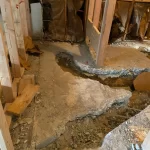The upcoming 2024 election is more than just another political event—it’s a pivotal moment that could reshape our financial landscape, especially for community development housing tax credits. So, let’s dive into what this means for all of us.
As you know, the House-passed tax bill is currently stalled in the Senate. But what’s really causing anxiety is the impending expiration of a staggering $4.7 trillion in tax cuts by the end of 2025. This potential fiscal upheaval has everyone wondering how Congress and the president will handle this challenge, especially with the presidential election just five months away.
Election Forecast: A Tight Race
Right now, it’s anyone’s game. Pollsters are calling the race between President Joe Biden and former President Donald Trump a toss-up. The stakes are equally high for Congress, with the Senate showing a slight Republican tilt. But let’s be real, five months is a lifetime in politics, and anything can happen.
The Fiscal Cliff Ahead
With $4.7 trillion in tax provisions set to expire in 2025, next year promises to be a legislative rollercoaster. If Congress doesn’t act, millions of Americans could face significant tax hikes. Among the expiring provisions are lower personal income tax rates, higher standard deductions, and boosted child tax credits. While some business tax benefits from the 2017 overhaul will remain, others, like business investment expensing and the 20% deduction for certain business income, are on the chopping block.
Possible Election Scenarios And What They Mean
- Republican Party: If Trump and the Republicans clinch victory, community development incentives could find themselves on the defensive. The low-income housing tax credit (LIHTC), new markets tax credit (NMTC), historic tax credit (HTC), and renewable energy tax credits might face cuts, while opportunity zones (OZ) could see an extension.
- Democratic Party: A blue wave could herald a golden era for community development affordable housing tax credits. Expect extensions, expansions, and new credits like the neighborhood homes tax credit (NHTC) and workforce housing tax credit (WHTC).
- Republican President, Split Congress: This scenario calls for intense negotiation. Bipartisan cooperation will be crucial, and the House Ways and Means Committee will play a pivotal role, regardless of party control.
- Democratic President, Split Congress: This is similar to the previous setup but with Biden at the helm. Here, bipartisan deals will be essential, with moderates holding significant influence.
What’s at Stake For Specific Tax Incentives?
Depending on the election results, we could see different fates for critical tax incentives. The LIHTC and NMTC might get a makeover or an extension, driven by the political winds. Enhancements to these credits could drive economic growth in underserved areas, making this election incredibly significant.
Wrapping Up
The 2024 election isn’t just about who gets the keys to the White House—it’s about the future of community development housing tax credits and, by extension, the future of countless American communities. Whether you’re a affordable housing developers, a local government official, or a nonprofit leader, staying informed and engaged is crucial. The next five months will set the stage for years to come, so let’s be ready to advocate for policies that support economic equity and community resilience.
Stay tuned, contact us, and stay informed. Let’s navigate this political rollercoaster together!
Catch you next time,
Midtown-Builders










